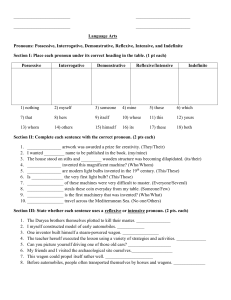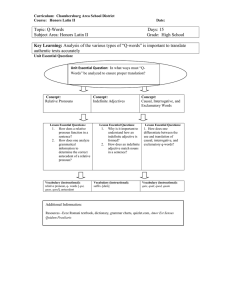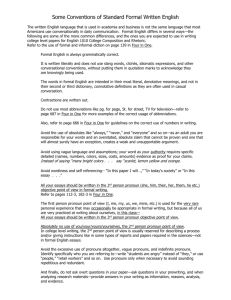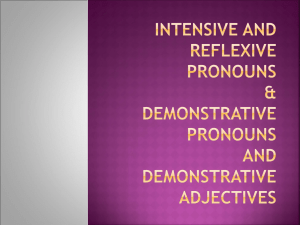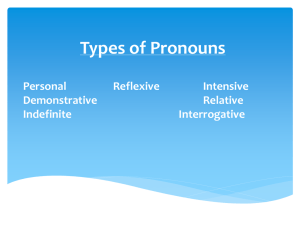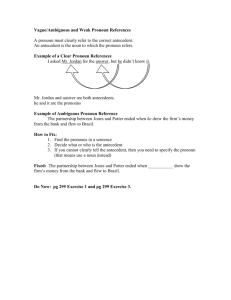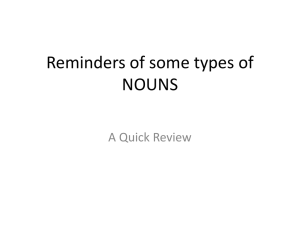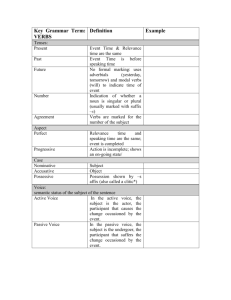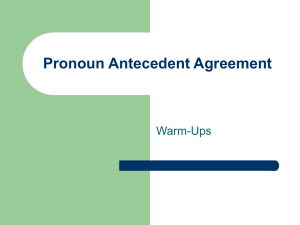Demonstrative
advertisement
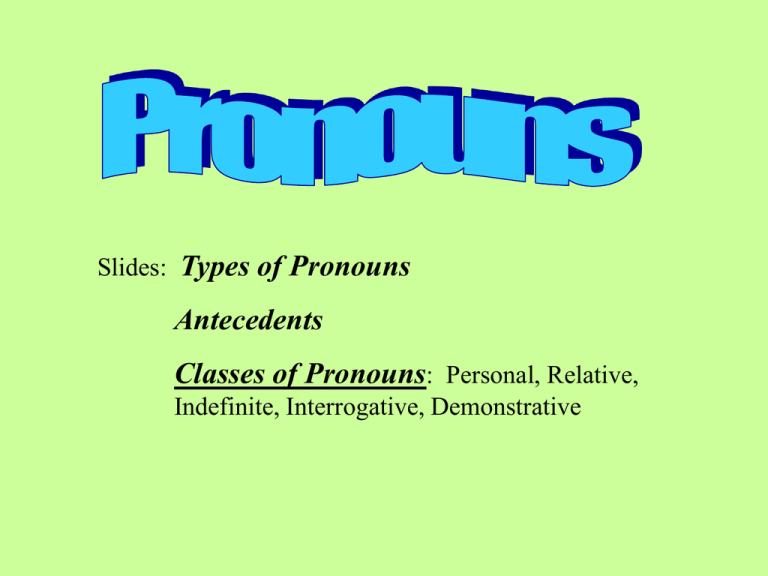
Slides: Types of Pronouns Antecedents Classes of Pronouns: Personal, Relative, Indefinite, Interrogative, Demonstrative I, you, she, it, which, that, themselves , whoever, me, he, they, mine, ours All pronouns have antecedents. An antecedent is the noun that the pronoun refers to replaces. Larry was considered the important person in the family. Mrs. Smith and John always deferred to him, though he was often surly with them and contemptuous toward his father. Personal Relative Indefinite Interrogative Demonstrative A Personal Pronoun takes the place of a noun Our coach made her point without raising her voice. Reflexive: adding -self or -selves Miss Sally Sunshine loves herself. John does not seem himself today. Intensive : is a reflexive pronoun that intensifies, or emphasizes the noun or pronoun it refers to. Leo himself taught his children to invest in their lives in others. Relative pronouns relate an adjective clause to the noun or pronoun it modifies. Students who study regularly get the best grades. The dance, which we had looked forward to for weeks, was cancelled. An indefinite pronoun often refers to unnamed or unknown people or things. I dont know if you’ve known anybody from that far back; if you’ve loved anybody that long, first as an infant, then as a child. An Interrogative pronoun asks a question. Who are you? Who could you be? What do you want for dinner? Where are you going? A demonstrative pronoun points out people, places, or things without naming them. This shouldn’t be too hard. That looks about right. Theses are the best. Those ought to be thrown out. Personal I, me, my mine we, us, our, ours you, your, yours they, them their, theirs he, him, his she, her, hers it, its Intensive and Reflexive myself, yourself, himself, herself, itself, ourselves, yourselves, themselves Relative: what, who, whose, whom, which, that Interrogative: who, whose, whom, which, what Demonstrative: this, that, these, those Indefinite all, another, any, anybody, anyone, anything both, each, each one, either, everybody,everyone everything, few, many most much neither, nobody, none, no one, nothing, one, other, several, some, somebody, someone, something, such
